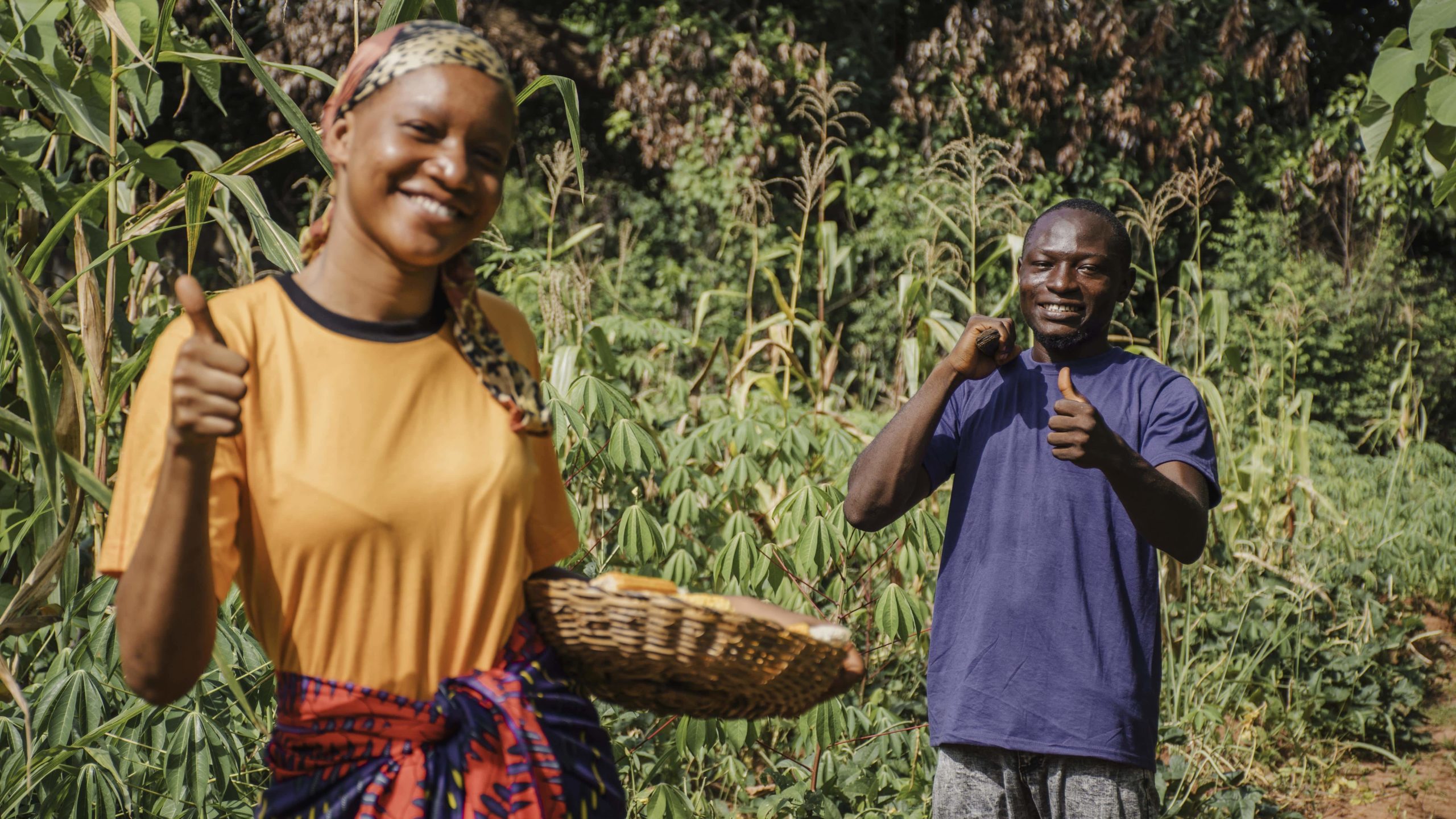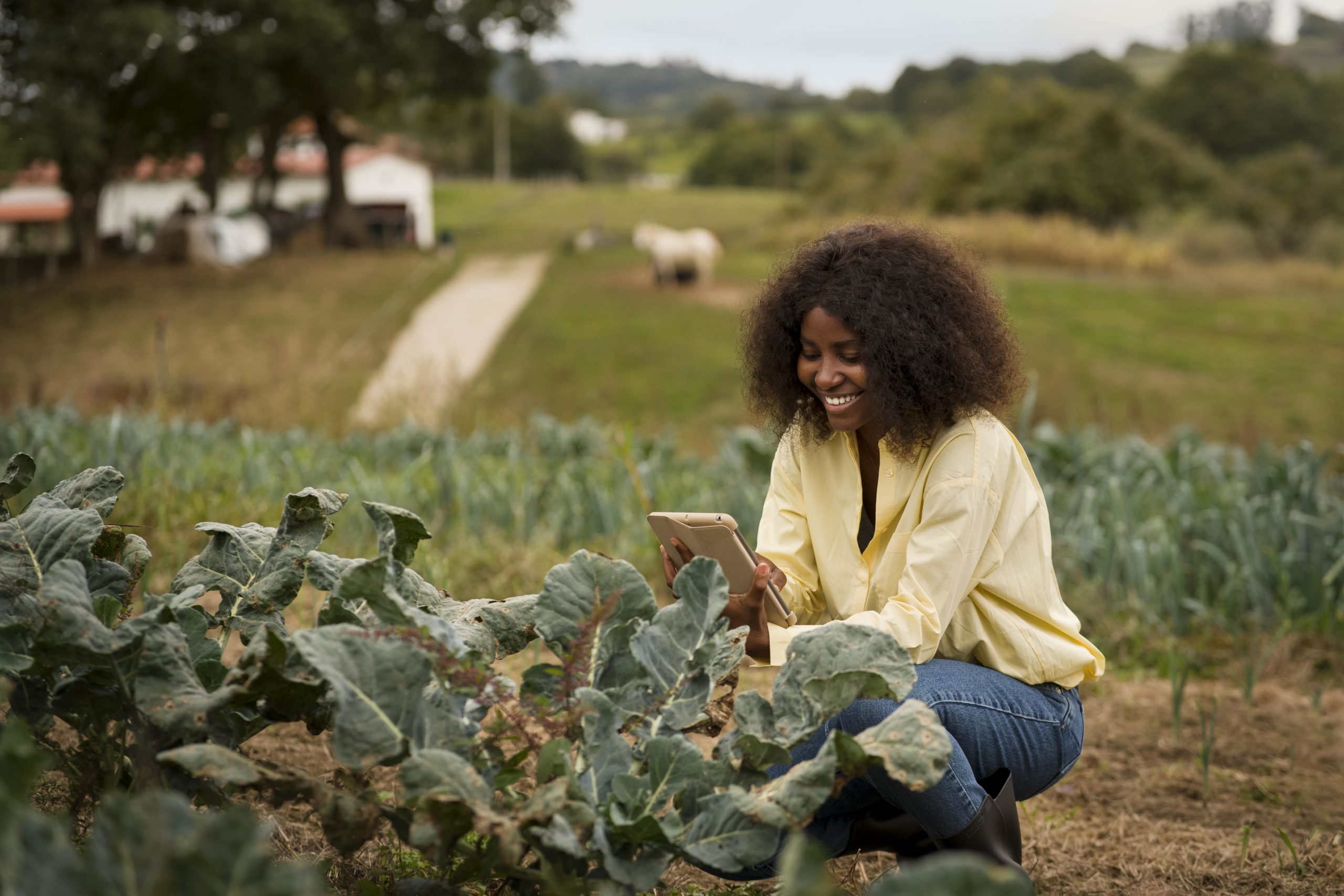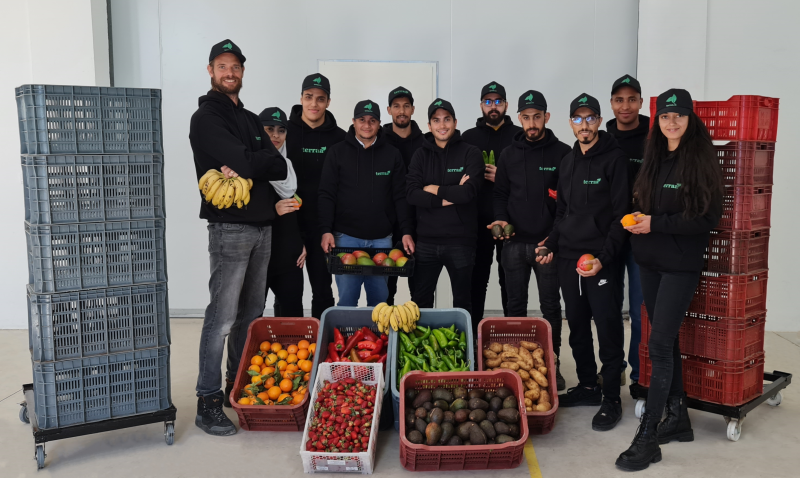Agriculture accounts for more than a quarter of Kenya's GDP, and more than 75 % of the population lives partly from agriculture. However, the country's agricultural sector is generally inefficient and complex, and food waste is high due to inefficient handling techniques. At the same time, on the one hand, farmers often do not have access to a fair market, and on the other, sellers struggle to benefit from a reliable supply of quality produce at an affordable price. It was to reduce this fragmentation, particularly in the fruit and vegetable market, that Twiga Foods was set up in 2014. Since then, it has been improving market access for farmers and ensuring a reliable supply for sellers.
Connecting farmers and sellers effectively and guaranteeing better access to the market
Twiga Foods runs a food procurement platform that supplies fresh fruit and vegetables from farmers in rural areas to merchants based in the Kenyan capital, Nairobi. To do this, the agritech start-up buys fresh produce from these farmers at higher than market prices. It then resells them through its platform at a lower price than competitors. In this way, it is cheaper for sellers to obtain their supplies via the platform, and farmers also benefit. In this way, the start-up is bringing greater food security to Kenya by streamlining supply chains and connecting sellers and suppliers in the most efficient way possible.

In addition, by ensuring better market access for farmers, Twiga Foods reduces post-harvest losses and waste. This fair trade solution therefore helps to achieve several Sustainable Development Goals (SDGs) aimed at ending poverty, combating inequality and protecting the environment.
Twiga Foods in figures
Twiga Foods deals directly with more than 1,000 farmers. It manages 25 collection centres and a fleet of over 50 delivery vehicles. It employs hundreds of staff and has become the largest seller of bananas in Kenya. In January 2018, for example, the start-up was sourcing more than 245 tonnes of bananas a week from over 3,000 farmers.
These bananas were then distributed via 7,000 weekly deliveries to more than 3,500 registered suppliers, who were replenished on average every two days. Today, there are more than 12,000 daily deliveries of fresh produce to more than a dozen towns and cities. In its 8 years of existence, the startup has reached over 140,000 small retailers across Kenya, representing around 25 % of the entire sector.
How does the Twiga Foods solution work?
Twiga Foods' distribution infrastructure is managed using a digital platform that collects real-time data from end to end. The solution is also integrated with mobile money (M-Pesa) to enable cashless payments across the value chain.
For farmers: once the Twiga Foods team has registered farmers on the platform, they can deliver their produce to the nearest collection centre. Once they have made a sale via the app, the start-up sends them a receipt by text message, and payment is made within 24 hours by mobile money.
For sellers: sellers place their orders via the app or the toll-free call centre, 24 hours a day, 7 days a week. And Twiga Foods, which manages stocks through its warehouses and fulfilment centres, takes care of delivering the products to them, recording the transaction details on the mobile app. Sellers pay for the products using mobile money and receive a receipt by SMS.
Facilitating trade in collaboration with mobile operators
Twiga Foods takes advantage of the latest technologies and the ubiquity of mobile phones combined with modern distribution and logistics to succeed in its mission. It uses M-Pesa (Safaricom's mobile money service) through which it makes around 1,000 payments to farmers per week, while streamlining its payment processes for vendors and farmers. This greatly reduces the risks and costs associated with handling cash.

In addition, by integrating mobile payments into its supply chain platform, the innovative company enables farmers to receive their payments via the platform. This means that information is recorded in real time, so that payments can be made quickly.
Twiga Foods is a business-to-business trading platform that sources produce directly from farmers and supplies it to urban retailers. In doing so, it improves farmers' livelihoods and boosts sales for vendors. On the other hand, it contributes to reducing waste and lowering food prices in urban centres. It also offers better quality products at more affordable prices (up to 10 to 15 % cheaper than on the traditional wholesale market). What's more, by managing deliveries, the start-up saves sellers time and money, as they don't have to collect the products themselves from the producer.





